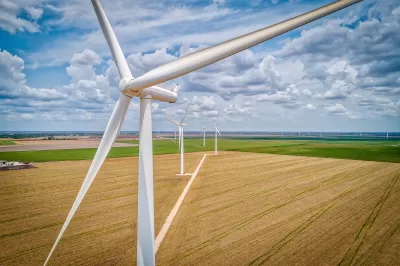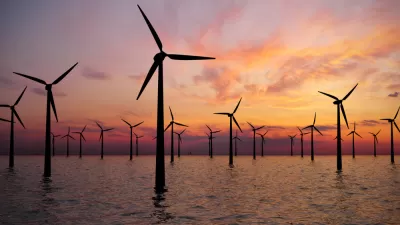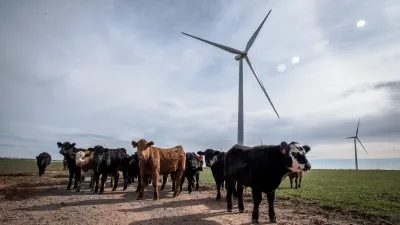The 184-megawatt wind project will help supply power to Amazon’s growing data center operations and logistics hubs in the region.

“Wind energy development has long been stuck in the doldrums in the southeastern United States,” writes Maria Gallucci in an article for Canary Media, where until last month, nine states — Alabama, Arkansas, Florida, Georgia, Kentucky, Louisiana, Mississippi, South Carolina, and Virginia — had installed zero megawatts of commercial wind capacity. Mississippi has broken from those ranks, with the state officially marking the opening of its first utility-scale wind farm in mid-June.
“Wind projects have historically struggled to take off in the U.S. Southeast for a few key reasons, including political opposition and a lack of favorable state renewable energy policies,” Gallucci reports. Another reason is lower wind speeds at low altitudes, which the project offsets by using taller, more powerful turbines. “The Delta wind project is using Vestas turbines with blades that can, at their highest point, reach 692 feet — making them the tallest onshore turbines in the country.”
The 41-turbine, 184-megawatt wind project is located on 14,000 acres of farmland in the northwestern corner of the state, which will continue to produce rice, soybeans, corn, and wheat around the turbines, a practice that isn’t new to wind farms but that is currently being explored as a way to make land use for another type of renewable energy, solar, more efficient as the concerns about solar panels taking valuable farmland out of production are growing.
Gallucci reports that a portion of the power produced by the new wind farm will be purchased by Amazon, which plans to build two data center complexes in the state and is backing 30 wind and solar projects across the Southeast. Data centers are notorious for consumption of resources, including electricity and water, and that demand will only rise as the use of AI — and any future novel technologies — grows.
FULL STORY: Mississippi just got its first utility-scale wind farm

Planetizen Federal Action Tracker
A weekly monitor of how Trump’s orders and actions are impacting planners and planning in America.

Congressman Proposes Bill to Rename DC Metro “Trump Train”
The Make Autorail Great Again Act would withhold federal funding to the system until the Washington Metropolitan Area Transit Authority (WMATA), rebrands as the Washington Metropolitan Authority for Greater Access (WMAGA).

The Simple Legislative Tool Transforming Vacant Downtowns
In California, Michigan and Georgia, an easy win is bringing dollars — and delight — back to city centers.

The States Losing Rural Delivery Rooms at an Alarming Pace
In some states, as few as 9% of rural hospitals still deliver babies. As a result, rising pre-term births, no adequate pre-term care and harrowing close calls are a growing reality.

The Small South Asian Republic Going all in on EVs
Thanks to one simple policy change less than five years ago, 65% of new cars in this Himalayan country are now electric.

DC Backpedals on Bike Lane Protection, Swaps Barriers for Paint
Citing aesthetic concerns, the city is removing the concrete barriers and flexposts that once separated Arizona Avenue cyclists from motor vehicles.
Urban Design for Planners 1: Software Tools
This six-course series explores essential urban design concepts using open source software and equips planners with the tools they need to participate fully in the urban design process.
Planning for Universal Design
Learn the tools for implementing Universal Design in planning regulations.
Smith Gee Studio
City of Charlotte
City of Camden Redevelopment Agency
City of Astoria
Transportation Research & Education Center (TREC) at Portland State University
US High Speed Rail Association
City of Camden Redevelopment Agency
Municipality of Princeton (NJ)





























